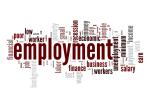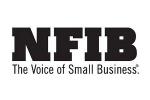NEW YORK — The Conference Board — a global, nonprofit think tank and business membership organization — recently released its monthly economic indexes, and its findings paint a more positive outlook for the coming months.
- The Board’s Consumer Confidence Index rose again in July to 117.0 (1985=100), up from 110.1 in June.
- The Present Situation Index — based on consumers’ assessment of current business and labor market conditions — improved to 160.0 (1985=100) from 155.3 in June.
- The Expectations Index — based on consumers’ short-term outlook for income, business, and labor market conditions — improved to 88.3 (1985=100) from 80.0 in June.
More importantly, the Board stated in its release, the Expectations Index climbed well above 80—the level that historically signals a recession within the next year. Despite rising interest rates, consumers are more upbeat, the organization says, likely reflecting lower inflation and a tight labor market.
“Consumer confidence rose in July 2023 to its highest level since July 2021, reflecting pops in both current conditions and expectations,” says Dana Peterson, chief economist at The Conference Board. “Headline confidence appears to have broken out of the sideways trend that prevailed for much of the last year. Greater confidence was evident across all age groups, and among both consumers earning incomes less than $50,000 and those making more than $100,000.”
Peterson adds: “Assessments of the present situation rose in July on brighter views of employment conditions, where the spread between consumers saying jobs are ‘plentiful’ versus ‘hard to get’ widened further. This likely reflects upbeat feelings about a labor market that continues to outperform. When asked about current family financial conditions (a measure not included in calculating the Present Situation Index), the share of respondents citing a ‘good’ situation rose, and those citing ‘bad’ conditions fell, signaling still-healthy family finances. This might reflect softening inflation and continued income support from employment.”
Peterson says that expectations for the next six months improved materially, reflecting greater confidence about future business conditions and job availability.
“This likely reveals consumers’ belief that labor market conditions will remain favorable,” she says. “Expectations for future incomes ticked down slightly, a potential reflection of slower wage growth compared to a year ago. The measure of expected family financial situation, six months hence (not included in the Expectations Index) also softened somewhat in July—despite further decline in the 12-month forward inflation expectations gauge.”
Despite this more optimistic view for future months, however, the Board’s findings reveal that consumers’ assessment of current business conditions was slightly less optimistic in July, with 21.9% of consumers saying business conditions were “good,” down from June’s 23.4%, and 15.2% said business conditions were “bad,” which is essentially unchanged from 15.3% in June.
Consumers’ appraisal of the labor market, however, improved, with 46.9% of consumers saying jobs were “plentiful,” up from 45.4%, and 9.7% of consumers saying jobs were “hard to get,” much lower than 12.6% in June.
Consumers were more optimistic about the short-term business conditions outlook in July, with 17.1% of consumers expecting business conditions to improve, up from 14.6%. Meanwhile, 14.0% expected business conditions to worsen, down from 17.7% in June.
About the Survey
The monthly Consumer Confidence Survey®, based on an online sample, is conducted for The Conference Board by Toluna, a technology company that delivers real-time consumer insights and market research through its technology, expertise, and panel of more than 36 million consumers. The cutoff date for the preliminary results was July 19.
Have a question or comment? E-mail our editor Dave Davis at [email protected].






























